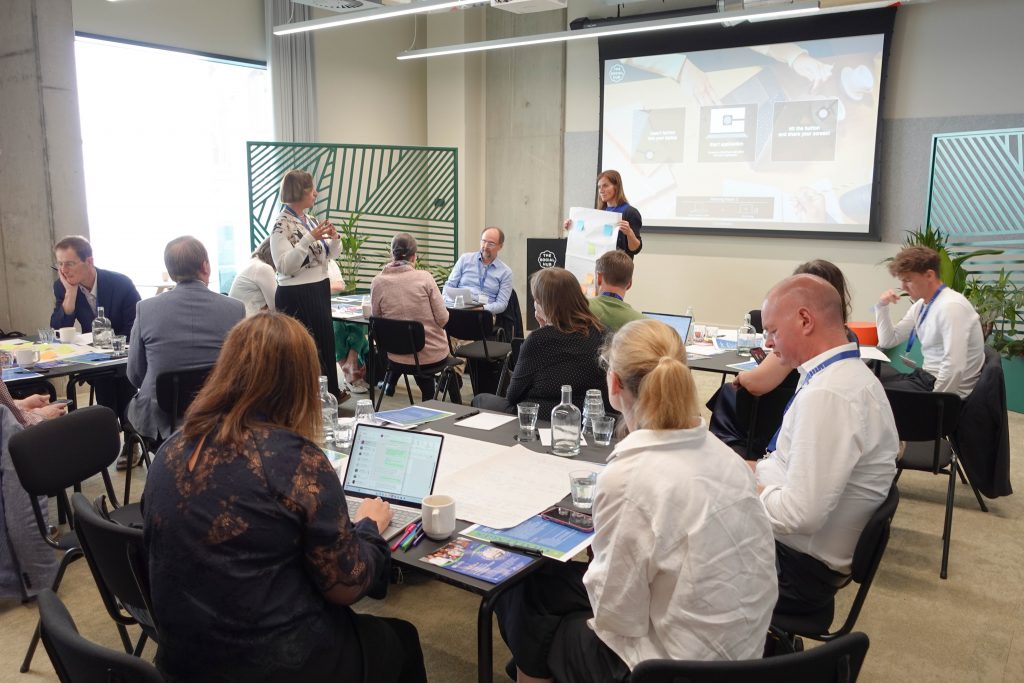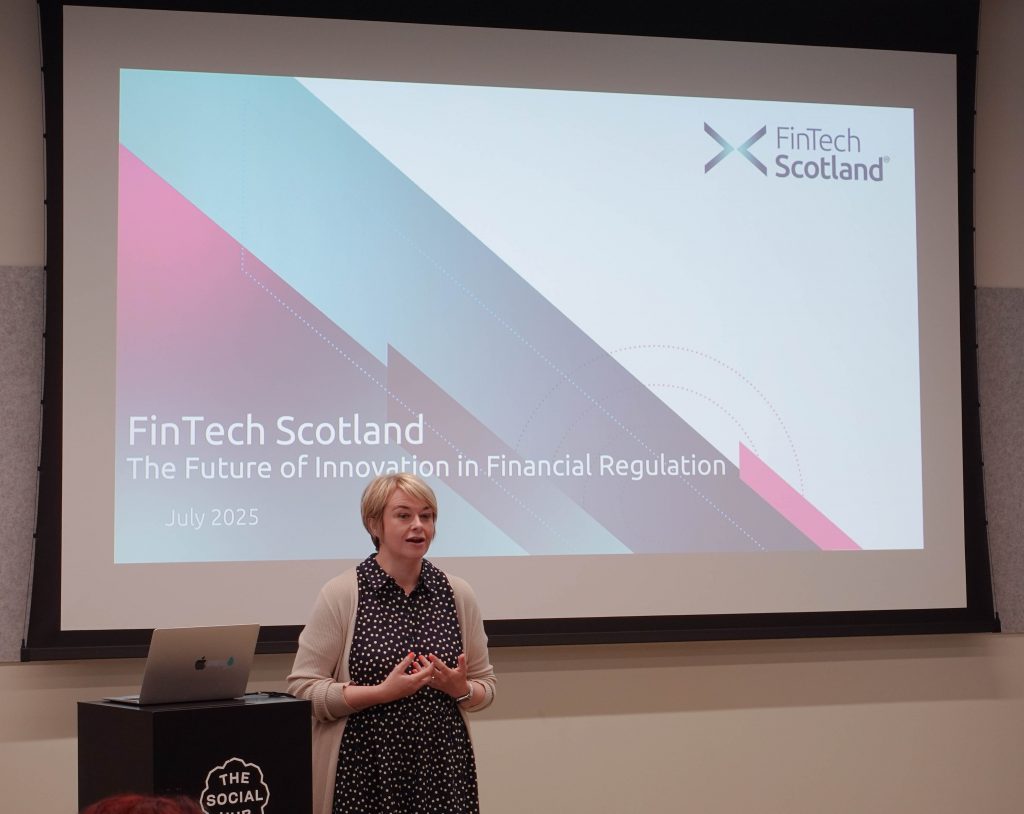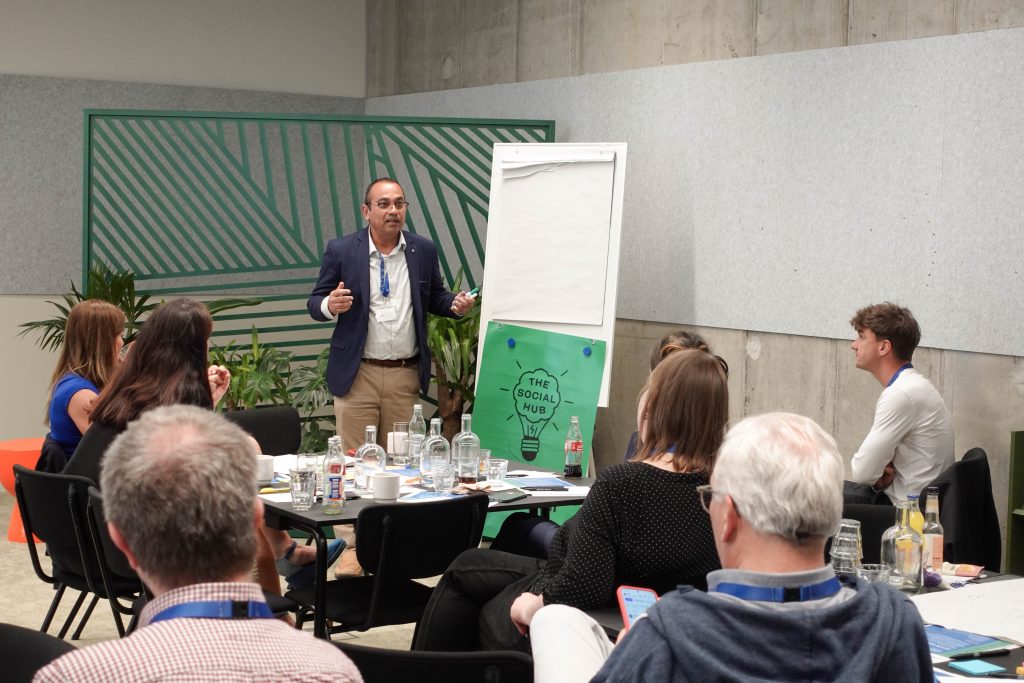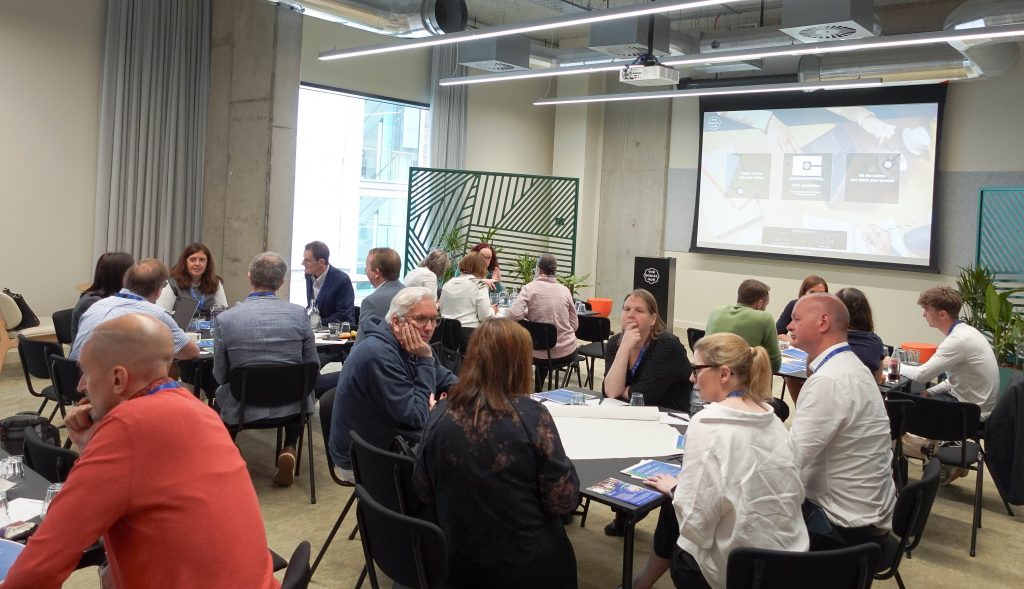As part of the Spotlight on RegTech Resilience and Compliance, UKFin+ hosted a roundtable event in Glasgow on 16 July 2025. This event brought together leading voices from industry, academia, and government to address some of the most persistent and complex challenges facing financial services.
Setting the Scene: RegTech, Resilience and Compliance
The day started with a warm welcome and an introduction from UKFin+ Director Professor Karen Elliott. She discussed the vision of UKFin+ and how the spotlight on RegTech Resilience and Compliance fits into the UKFin+ research agenda. Her presentation highlighted the network’s aims to connect academic research with the real needs of the financial services industry by working together, designing solutions jointly, and funding focused research.
This was followed by a keynote presentation from Nicola Anderson, CEO of FinTech Scotland, who gave a keynote on the bigger picture of innovation in financial regulation. She highlighted the value of working together in clusters and the importance of collaboration and alignment with national and international agendas. Nicola also pointed out Scotland’s and the UK’s key role in driving responsible, tech-led change in finance.
Wrapping up the event was an insightful speech by Dr. Devraj Basu from the University of Strathclyde, who summarised discussions from the day, current and emerging trends in RegTech. His focus included digital identity, anti-money laundering (AML), tokenisation, and the transforming role of the Scottish innovation ecosystem.



Roundtable Discussions
A central goal of the Glasgow spotlight was to advance collaborative conversations between academic researchers and industry leaders. This was achieved through themed roundtable sessions, where participants explored how emerging technologies like AI, Large Language Models (LLMs), and quantum computing can be used responsibly within regulated environments.
Discussions focused on the need for better risk management, real-time auditing, and a shared infrastructure. These changes can help support innovation while ensuring the market and consumer integrity are protected.
The roundtables focused on important issues where regulation, technology, and sustainability connect. Their goal was to work together to create practical research plans. Some key challenges included:
Cross-Jurisdictional Compliance Complexity
Participants talked about the challenges of dealing with different rules in the EU and UK, especially around sustainable finance. The EU’s and UK’s reporting requirements don’t match, creating confusion for companies that work in both regions. Finding a way to follow both sets of rules, while still protecting investors and being clear about environmental impact, is a challenge for regulators and tech developers.
Regulatory Convergence vs. Divergence
The conversation focused on finding a balance between standards to improve efficiency and supporting local innovation. The UK’s path after Brexit raises questions about its role in climate finance. It is unclear whether working with EU frameworks or going in a different direction will better support its innovation efforts.
The Technology and Sustainability Paradox
A key theme was the environmental impact of AI-powered RegTech, especially the high energy and water use of large language models (LLMs) and data centres. Participants pointed out the irony of using resource-heavy technology to support environmental regulation. This sparked discussions about creating “Green RegTech” standards and Corporate Digital Responsibility (CDR) frameworks to help balance innovation in compliance with sustainability goals.
Implementation and Design Challenges
Participants discussed several key challenges, including how to scale RegTech solutions while staying environmentally and ethically responsible. They highlighted the need for AI systems in finance to be transparent and fair, so they can be trusted. As cryptocurrencies and digital assets grow quickly, there’s also a need for flexible yet strong rules to keep up. Finally, while innovation is important, it must not put the financial system at risk, so there were calls to expand safe testing spaces like the Financial Regulation Innovation Lab (FRIL).



Bringing Industry and Academia Together
The event created a space for attendees to engage in two rounds of themed roundtable discussions. These focused on identifying opportunities for collaboration and surfacing real-world challenges across the financial services landscape.
The groups talked about several important topics, including the need for secure digital IDs to help fight financial crime and clear rules for new types of digital financial products. They also discussed how technologies like AI, large language models, and blockchain are becoming more important for meeting rules and tracking environmental impact. A big concern was the environmental cost of using large amounts of data, and the need to build more eco-friendly digital finance systems. Participants also noted that rules can vary across countries, which makes things complicated, and that more consistency could help. Overall, there was strong support for working together to create tech solutions that are not only effective, but also fair, responsible, and in line with changing regulations.
View the results of the roundtable discussions.
These insights will feed directly into the UKFin+ commissioning framework, and we look forward to seeing the ideas and partnerships sparked in Glasgow come to life through funded research projects.
Thank you to everyone who joined us in Glasgow. Your energy, ideas, and willingness to collaborate made the day a huge success. We’re excited to continue building on this momentum as we head toward the November funding call and future events across the UKFin+ network.
Join the Conversation
UKFin+ invites all stakeholders from industry, policy, and academia to contribute to this growing network. Whether you’re tackling sustainability, compliance, AI, or financial resilience, there is space to collaborate, co-create, and apply for funding to address the FinTech sector’s most urgent and complex challenges.
To stay up to date with future UKFin+ events and opportunities, sign up to our mailing list.
